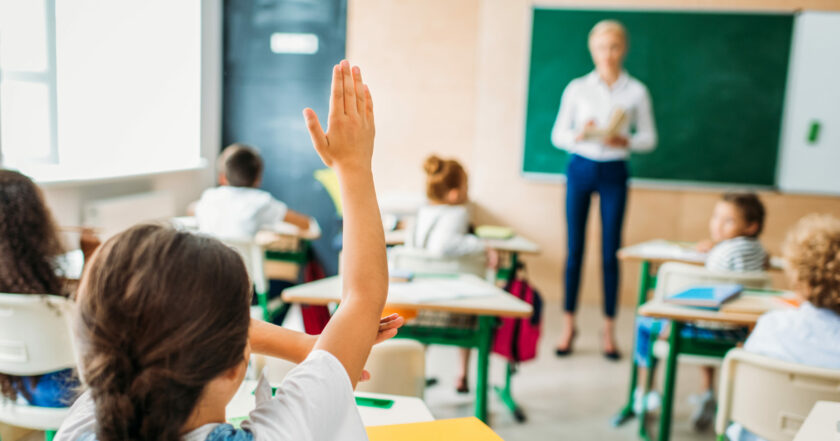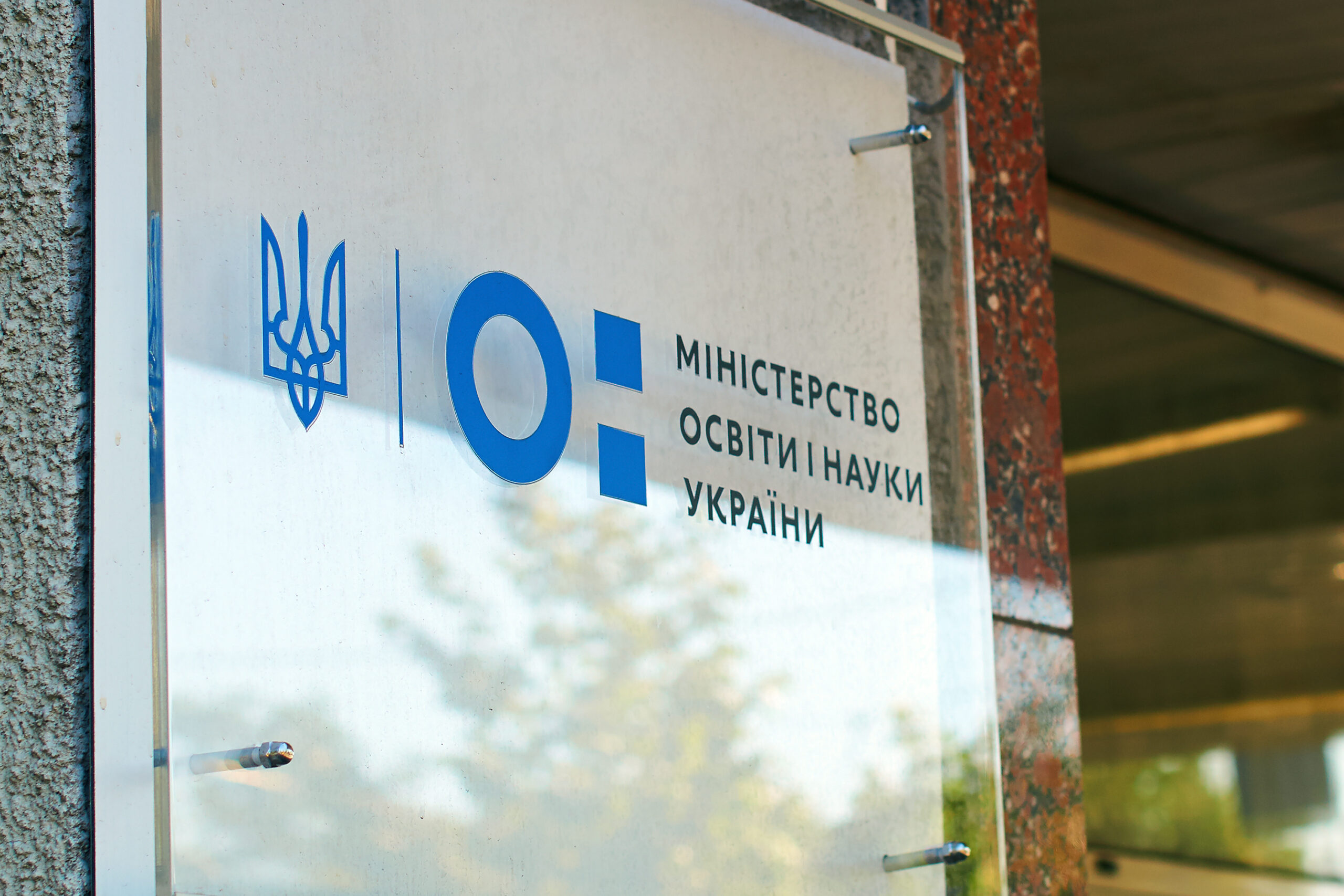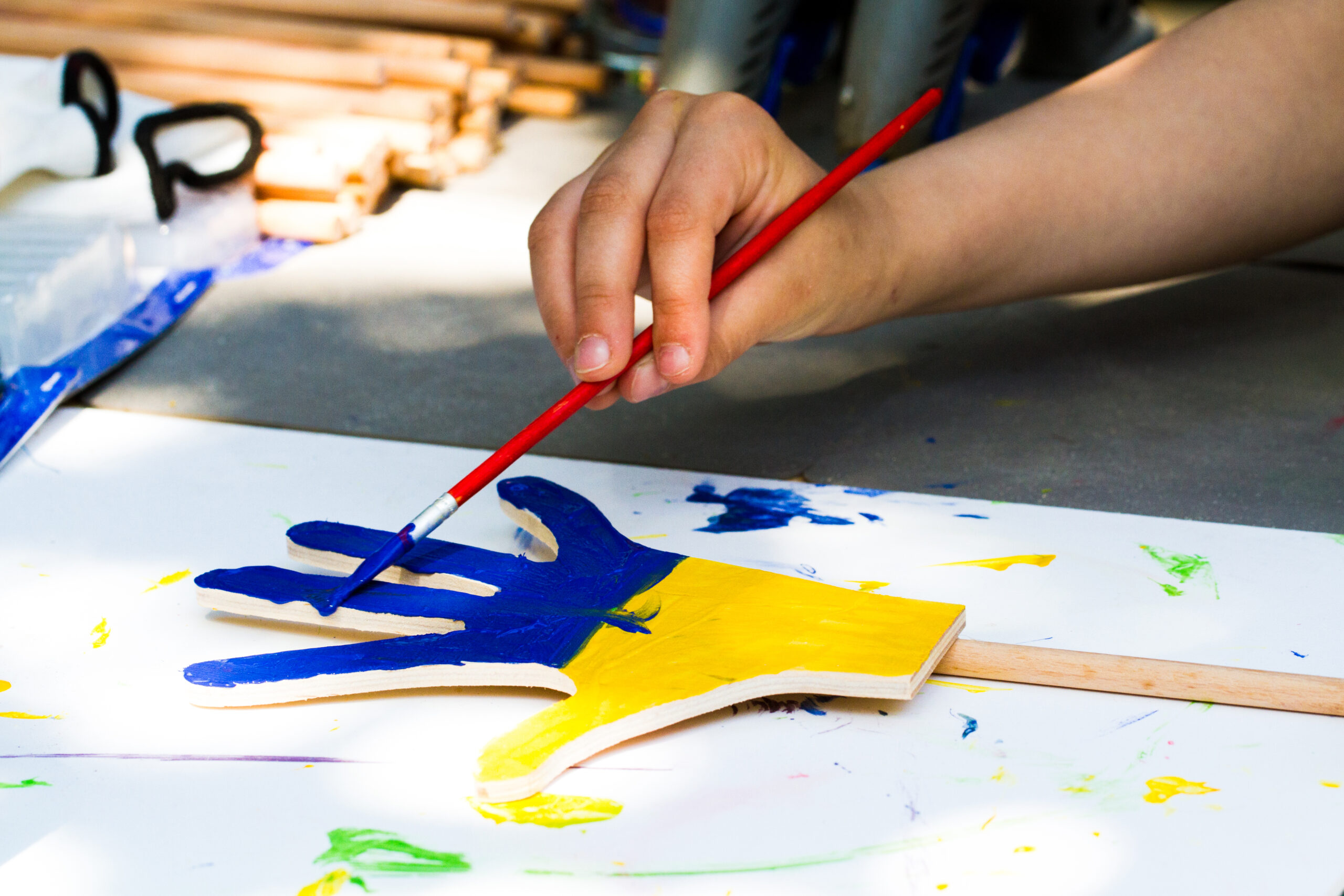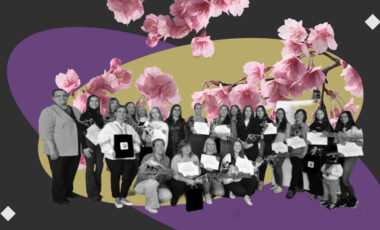The European integration of schools: how European approaches change Ukrainian education

The reform of school education is one of the most successful reforms implemented in Ukraine in recent years. This reform illustrates how the Western standards gave a push to long-needed changes in the secondary education system in Ukraine.
First of all, it is worth noting that EU structures have only formal requirements for secondary education for candidate states. For example, the association agreement only declares that Ukraine and the EU are "examining the possibilities of development and cooperation" regarding school education. The chapters of the acquis also do not foresee the reform of school education, the field of education is recognised primarily as the competence of the member states` governments.
However, the reform of secondary education, which started in Ukraine in 2016 by the adoption of a new law on education and implementation of the "NUSH" concept ("New Ukrainian School"), used the basic principles of modern education in EU countries. Experts described the New Ukrainian School as an attempt to "Europeanize" Ukrainian education since its ideology was mostly based on the approaches and practices common in the EU countries. In particular, even the basic definitions coincide. The definition of the concept of "key competences" in the "New Ukrainian School" programme repeats the definition from recommendations of the European Council to the member states.
What does European education look like?
There is no single unified system of secondary education in the countries of the European Union. The EU leaves it up to the member states to determine how to provide educational services to their citizens. Therefore, the education system across European countries can differ significantly. For example, one of the principles of education in Scandinavian countries is a concept of equal educational opportunities for all the children, regardless of origin or place of residence. This model provides equal funding to all the schools. At the same time, tuition-based elite schools and private boarding schools remain popular in Great Britain. Specialized schools that prepare children for certain professions are popular in Germany and Belgium. In Finland, on the other hand, children are taught an extensive list of academic subjects.
At the same time, the European Union builds a common educational space, which provides an opportunity to continue studying in other EU countries if necessary while European university graduates enjoy equal opportunities across Europe. Therefore, the European Council defines the key competences that students should possess and approaches to building an inclusive educational space. Also, the EU structures and the governments of the member countries finance programs that integrate and improve school educational systems of other member states. For example, multilingual international schools in the framework of the intergovernmental educational project "European Schools" have been operating since 1957. Children of employees of EU institutions mainly study there. Today, 14 schools in 7 countries are working under the same programs within the project. The European Commission also funds programs that help member countries in implementing multilingual classrooms, solving the problem of early school leaving, facilitating well-being at schools, organizing international development programs and exchanges for teachers..
The traditional educational system in Ukraine was based on the soviet principles of centralized management, focus on discipline and factual knowledge, as well as encouragement of more successful students. Modern Western approaches, on the other hand, offer autonomy to educational institutions, encourage development of competences instead of actual knowledge, and focus on the development of "soft skills' while cancelling "competitiveness" in the classroom.
Competence-based education and "soft skills"
The main principle of the modern approach to education, which is widespread in the EU countries, is based on developing skills and competences instead of providing students with only factual knowledge. According to this approach, knowledge for its own sake is replaced by the forming of skills, experts of the Ministry of Education and Science comment.
To form a set of skills and competences, it is important not only to listen to the teacher, but to introduce an activity component into the lesson. For example, students can conduct small experiments and to come to their own conclusions in order to see how knowledge can be applied in everyday life. This approach requires working in pairs or groups, which is not common in the traditional educational system, but becomes important in adult life.
Schoolchildren can be taught practical skills simulating real life tasks: or example, managing a bank account or writing a resume. However, competences are not limited to simulations. Another important component of competence development is social-emotional or "soft" skills. For instance, empathy, stress resistance, and the ability to comprehend one's emotions.
"It is a big myth that these skills are innate and cannot be developed. It is not true. Scientists say that we can learn to resolve conflicts, to communicate objectively, and to come up with creative solutions. It is a muscle that we can train. European educational programs pay a lot of attention to this," commented Oleksandr Elkin, the founder of the EdCamp organization and one of the co-authors of the NUSH reform.
This skill can be taught, in particular, with a set of various exercises. One of them is "resource chests" – a storage in which children keep pictures or objects that remind them of important people, memories, or events. Children can use them in stressful situations as a source of support that develops their stress resistance.
The focus on competence-based training is in the recommendations of the European Council. EU institutions systematically promote the development of this approach without directly controlling the educational process of the member countries. For example, in 2014, the European Council launched the KeyCoNet project, the task of which was to improve the implementation of the competence approach in school education. The initiative includes training sessions and webinars, evaluation of the implementation of approaches by the member states, and recommendations for government officials, teachers, and school principals.
The NUSH programme declares its task as "providing students not only with knowledge, but also the ability to apply it in everyday life." A pilot program for the voluntary certification of teachers undergoing competence training methods was conducted starting from the first years of the project's launch. The Ministry issues methodological recommendations and manuals for courses with competency-based approaches. With the support of international funds, a socio-emotional and ethical education program has been piloted in Ukraine involving more than 5 thousand children.
Academic autonomy of schools
Encouraging a variety of learning approaches is one of the basic recommendations of the European Council in education. The space for experimentation and the choice of educational programs is a fundamental feature of education in European countries, despite various approaches to the educational system itself, Oleksandr Elkin notes.
The system of school autonomy was formed in Europe in the 1980s and 1990s. By the end of the 20th century, school autonomy had already become a common practice in all EU countries. However, the degree of autonomy and its legislative regulations differ.
Educational institutions with limited influence on the educational process struggle to provide an adequate level of services. Educational autonomy has intensified nowadays, when flexibility and the ability to change is vital for the survival of any institution.
Experts note that academic autonomy has already been ensured at the legislative level in Ukraine. In particular, Ukrainian teachers can choose between several sample textbooks. For example, 11 editions of primers, 13 editions of "I explore the world", 10 mathematics and 7 "arts" were available for the teaching of first-graders in 2021.
School autonomy is a complex concept, it is not limited only to the academic scope. The reform of NUSH includes autonomy in personnel and organizational policy, freedom to manage own finances.
However, the implementation of school autonomy is at a transitional stage right now. Many schools continue to coordinate their actions with senior management, others have introduced autonomy only partially. Experts note that many Ukrainian principals are not ready to finally switch to an autonomous management model, as they are used to standard programs and to the coordination of their management decisions. To solve this problem, international partners introduced a special course for school principals that teaches them basic ideas about the decentralization of education.
The teachers' ability to choose a curriculum or a way to improve their own qualifications is another important component of school autonomy. For this reason, the Ministry of Education "opened the market" of postgraduate teachers` education, taking away the monopoly from government institutions.
Inclusive education
The right to education is a basic democratic value, which is written both in the EU program documents and in the Ukrainian constitution. Inclusive education is one of the basic tools of this right. Even though specific requirements for the introduction of inclusive education are not prescribed in the Association Agreement and other EU recommendations for Ukraine, the EU monitors the human rights in candidate states.
Approaches to the implementation of inclusive education differ from one EU country to another, but all of them are based on the human rights model. It means that children with developmental disabilities or special educational needs should study together with their peers. For example, in Germany, a school doctor provides access to inclusive education. While in Estonia, a child's special educational needs of the children are identified directly at the school. The position of a teacher assistant for special education should be introduced in every inclusive class in Ukraine just like it is done in Poland where special training of such assistants is required.
Access to inclusive education is the responsibility of the state that is executed by the local authorities. Social service authorities must get involved if parents do not facilitate or hinder the child's access to education based on individual educational needs (for example, if parents do not respond to teachers' requests or do not follow the recommendations of school specialists).
According to the data of the Ministry of Education and Science of Ukraine, 33,861 students are provided with inclusive education this year. However, the statistics do not take into account the children who have non-medical reasons for special educational needs (for example, due to social, cultural, or religious conditions). The Ukrainian model of inclusive education still considers special educational needs to be a medical condition. For comparison, in 2021, researchers were unable to establish what kind of education was received by the 60,000 school-aged children with disabilities or whether they studied at all.
To meet the European standards, Ukrainian inclusive education has to ensure "the transition from a medical model to a human rights model, overcoming segregation (gradual reduction of special education in favor of inclusive education). The children with special educational needs have to be provided access to education at their places of residence. The transition to deinstitutionalization (the replacement of orphanages)is required for the accession of Ukraine to the European Union," – comments Marianna Onufryk, social policy expert of the Euroscope project of the NGO "ANTS" and head of the "Social Synergy" organization.
Meals in schools
The European Union pays attention not only to the educational process at schools, but also promotes healthy lifestyles of the schoolchildren. In particular, the European Council supports special programs that supply organic food products to schools and provide for healthy rations.
In 2021, reform of school diets was started in Ukraine. Initiated by the First Lady, Olena Zelenska, an updated menu with lesser amounts of sugars, salt, bread, fats, and offal products was introduced. Although the menu itself was criticized by some parents and experts, the fact that the Ukrainian officials started paying closer attention to healthy school meals is a positive move for Ukraine.
***
The start of a full-scale war led to many threats to the educational system in Ukraine. It's not only the destruction of the educational institutions and the forced return to online education, but also the termination of funding for many state educational programs. However, the post-war reconstruction of Ukraine will give a boost to the renewal of education in Ukraine. For example, in April 2023, the financial support of the European Union provided 5,000 tablets for junior school students enabling better distance learning. The European Union also financed programs that helped to integrate children of the Ukrainian immigrants into EU schools, and established tools for European schools or municipalities to provide support to the Ukrainian educational institutions affected by military actions.
Still, changes will not be limited to the reconstruction of buildings. After the start of the full-scale attack, a lot of Ukrainian children and their parents were able to get to know European school education first-hand. It can be expected that they will demand similar approaches after returning to Ukraine.
Ukraine's accession to the European Union will create new opportunities for the development of the school educational system. In particular, it will provide an opportunity to cooperate more closely with European schools. Ukraine will be able to participate in numerous programs for the development of school education financed by the EU. However, it is important to understand that Ukrainian society and the state are responsible for the completion of the school education reform. Our international partners will not fulfill this task instead of us.
It will be a long path before the European standards of education get implemented within the framework of the New Ukrainian School project and become common across the country. Therefore, it is not enough to reform the educational process itself. It is also important to improve the level of pedagogical education and the prestige of the teaching profession. However, the process of the "Europeanization" of Ukrainian education has already begun and received its legislative embodiment, and it is unlikely to roll back.
This publication has been made within the frameworks of the MATRA Programme supported by the Embassy of the Kingdom of the Netherlands in Ukraine. The opinions expressed are those of the author(s) only and should not be considered as representative of the Embassy's official position


























































